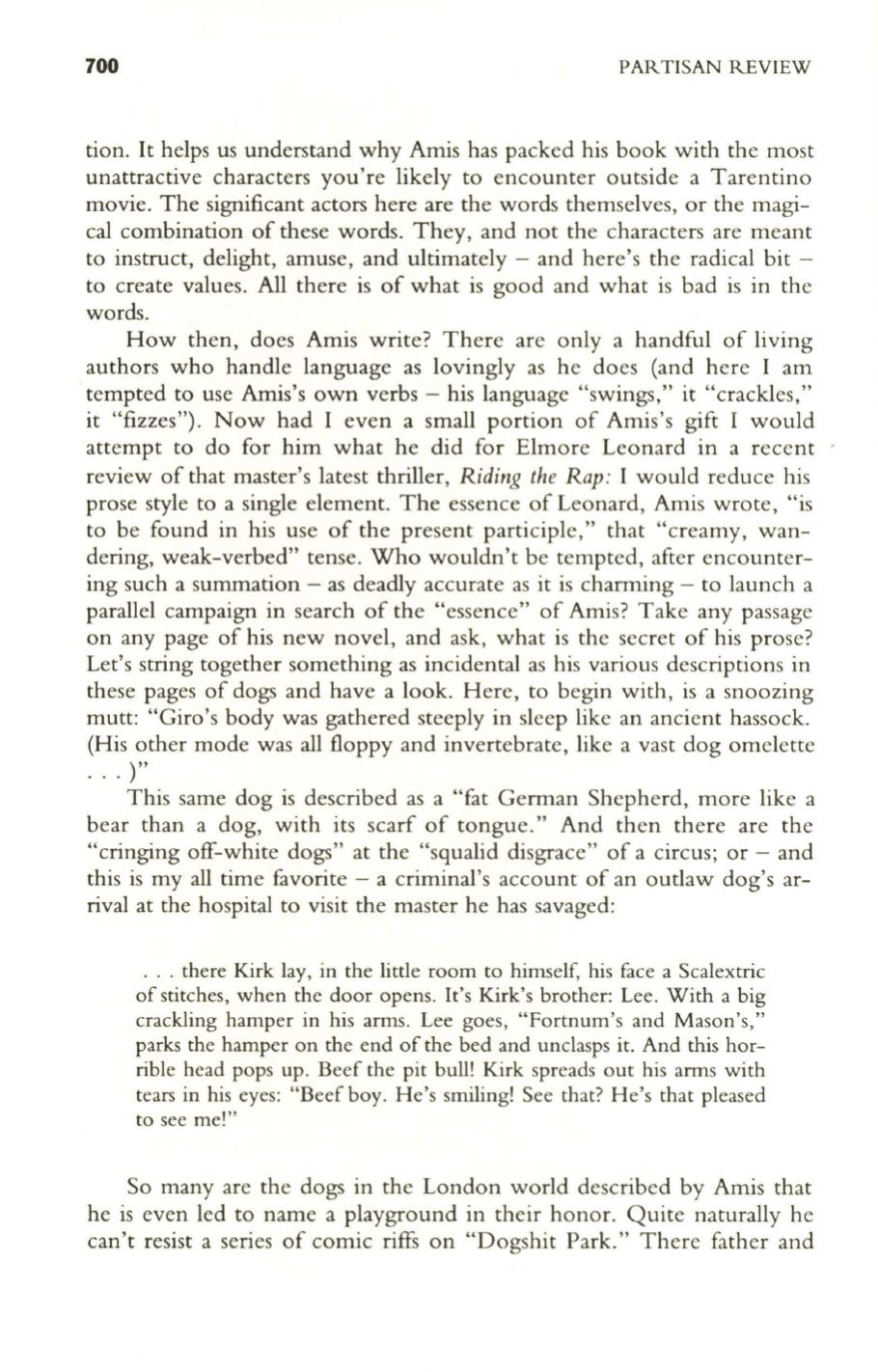
700
PARTISAN REVIEW
tion.
It
helps us understand why Amis has packed his book with the most
unattractive characters you're likely to encounter outside a Tarentino
movie. The significant actors here are the words themselves, or the magi–
cal combination of these words. They, and not the characters are meant
to instruct, delight, amuse, and ultimately - and here's the radical bit -
to create values. All there is of what is good and what is bad is in the
words.
How then, does Amis write? There are only a handful of living
authors who handle language as lovingly as he does (and here I am
tempted to use Amis's own verbs - his language "swings," it "crackles,"
it "fizzes"). Now had I even a small portion of Amis's gift I would
attempt to do for him what he did for Elmore Leonard in a recent
review of that master's latest thriller,
Riding the Rap:
I would reduce his
prose style to a single element. The essence of Leonard, Amis wrote, "is
to be found in his use of the present participle," that "creamy, wan–
dering, weak-verbed" tense. Who wouldn't be tempted, after encounter–
ing such a summation - as deadly accurate as it is charming - to launch a
parallel campaign in search of the "essence" of Amis? Take any passage
on any page of his new novel, and ask, what is the secret of his prose?
Let's string together something as incidental as his various descriptions in
these pages of dogs and have a look. Here, to begin with, is a snoozing
mutt: "Giro's body was gathered steeply in sleep like an ancient hassock.
(His other mode was
all
floppy and invertebrate, like a vast dog omelette
...
)"
This same dog is described as a "fat German Shepherd, more like a
bear than a dog, with its scarf of tongue." And then there are the
"cringing off-white dogs" at the "squalid disgrace" of a circus; or - and
this is my
all
time favorite - a criminal's account of an outlaw dog's ar–
rival at the hospital to visit the master he has savaged:
... there Kirk lay, in the little room to himself, his face a Scalextric
of stitches, when the door opens. It's Kirk's brother: Lee. With a big
crackling hamper in his arms. Lee goes, "Fortnum's and Mason's,"
parks the hamper on the end of the bed and unclasps it. And this hor–
rible head pops up . Beef the pit bull! Kirk spreads out his arms with
tears in his eyes: "Beef boy. He's smiling! See that? He's that pleased
to see me!"
So many are the dogs in the London world described by Amis that
he is even led to name a playground in their honor. Quite naturally he
can't resist a series of comic riffs on "Dogshit Park." There father and


